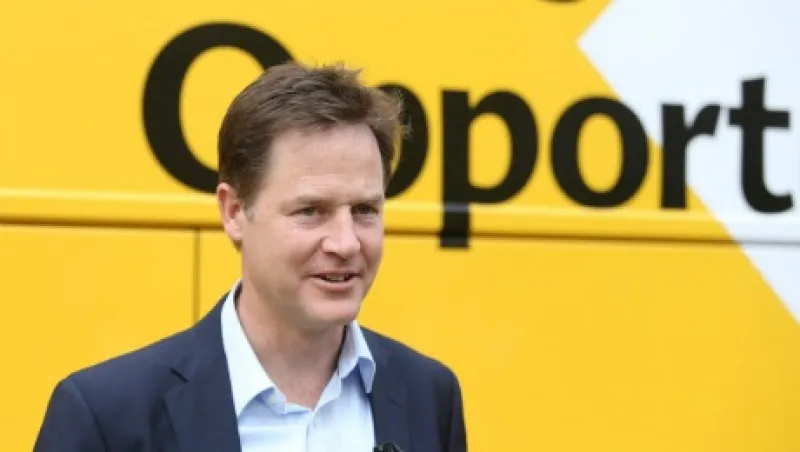All eyes are on the U.K. today, as the nation’s parliamentary election kicks into high gear and Prime Minister David Cameron’s Conservative Party struggles to retain its majority. The possibility of a weak government compromised by a multiparty coalition as well as a referendum on European Union membership and full Scottish succession have been brought to the forefront. In final days leading up to the election, the Tories have been running neck and neck with Ed Miliband’s Labour Party in polls. The Conservatives have pledged to lower taxes and use spending cuts in entitlement programs to reduce the deficit, while Labour has promised to preserve social spending through increased taxation among wealthy individuals and the corporate sector. The tight race has opened the door for a series of smaller parties to participate in any coalition formed. For investors, the outcome will have significant implications for both the pound sterling and European sovereign debt markets.
Soft industrial data from Europe. German factory orders rebounded at a slower pace than expected in March at 0.9 percent versus consensus forecasts for 1.5 percent after February’s contraction. In France, March industrial output contracted by 0.3 percent for the month after a flat reading in February. Despite the disappointing March data driven by weaker energy production levels France still managed to post the strongest quarterly production level in four years during the first three months of 2015.
Oil prices rise again. Energy Information Administration data released yesterday indicated a 3.9 million-barrel drop in inventories, the first such decline since late 2014 and significantly lower than consensus forecasts which called for a marginal increase. In somewhat volatile trading, both West Texas Intermediate and Brent grade futures contracts rose in electronic trading this morning, with the WTI June delivery series extending above $61 per barrel.
Alcatel-Lucent reports loss. French telecommunications giant based Alcatel-Lucent today announced a year-over-year net loss of $0.3 per share for the first quarter of 2015, despite nearly doubling operating income and posting significant improvement in operating margins achieved through cost-cutting measures. Weak demand in the U.S. was cited as a driver for the shortfall. After announcing a proposed $18 billion-dollar merger with Alcatel, Finnish telecom company Nokia last week also disappointed shareholders with earnings that fell well short of analysts’ forecasts.
ECB mulls tightening collateral requirements for Greek banks. Leaked information from the European Central Bank this morning indicates that bank policymakers are preparing to impose haircuts on collateral provided by Greek banks in advance of the May 11 Eurogroup meeting of euro zone finance ministers, which is widely seen as the final chance for an agreement with Athens before a technical default. The ECB had increased the limit on Emergency Liquidity Assistance for Greek banks multiple times in recent weeks to stave off concerns among bank depositors. Greek Prime Minister Alexis Tsipras’ administration has continued to be inflexible in negotiations with creditors, leading to a deep divide among Greek voters, according to the latest polls by media outlets. Tsipras has stated that if the negotiations fail in the 11th hour, he will pursue a national referendum on austerity measures demanded by the European Commission, ECB, and International Monetary Fund.
Alibaba tops estimates. Chinese e-commerce company Alibaba today announced a 45 percent increase in quarterly sales over the first three months of 2014 from the quarter ending in December, bringing adjusted earnings to $0.43 per share and beating consensus analyst estimates. The positive news comes at a time when the company finds its stock down over 20 percent for the year, below the level its stock debuted at in September 2014 and near-record lows reached on Thursday. In the accompanying press release, the company announced that Daniel Zhang will succeed Jonathan Lu as CEO.
Tesla beats estimates as sales rise. On Wednesday afternoon electric car company Tesla Motors announced a net loss for the first quarter that was significantly lower than consensus analysts’ estimates, at $0.36 per share versus an anticipated $0.49 shortfall. In the accompanying press conference CEO Elon Musk told shareholders that the company had delivered over 10,000 Model S vehicles in the first three months of the year and announced that its Model III sedan would reach market by 2017. Company management also discussed the bigger than anticipated demand for the newly announced Tesla Powerwall battery system.
U.S. Treasury to increase short-term debt issuance. On Wednesday the U.S. Treasury Department announced that it will increase its current operating balance to up to $225 billion and increase the issuance of Treasury bills, which mature in a year or less, in order to boost bond money-market liquidity. After years of longer-dated issuance to lock in prevailing low rates, this shift by the Treasury will bring relief to repo markets that provide short-term liquidity to banks and securities dealers.
Portfolio Perspective: May Day — Tom Stringfellow, Frost Investment Advisors
Traveling through Germany on the heels of last week’s annual CFA investment conference in Frankfurt, our trip overlapped celebrations of the May Day holiday. Heavy rains dampened some of the enthusiasm, but this holiday is taken seriously by the rank-and-file labor movement and as such, there were still a number of demonstrations and headlines discussing the employment situation in Germany and the EU as a whole. Despite an oft-discussed improving labor picture — excluding youth employment — the underemployment situation has become a lightning rod for the labor movement. Today at least one fifth of Europe’s part-time workers are underemployed; per the Financial Times, about 9.8 million part-time workers are working fewer hours than they’d like. This trend has risen in recent quarters, in tandem with the reported improvement in overall euro employment levels. There doesn’t appear to be a near-term solution though, as the ECB doesn’t expect unemployment levels to fall below 10 percent before 2017.
Tom Stringfellow, is president and chief investment officer of Frost Investment Advisors, a San Antonio, Texas–based asset management firm.






